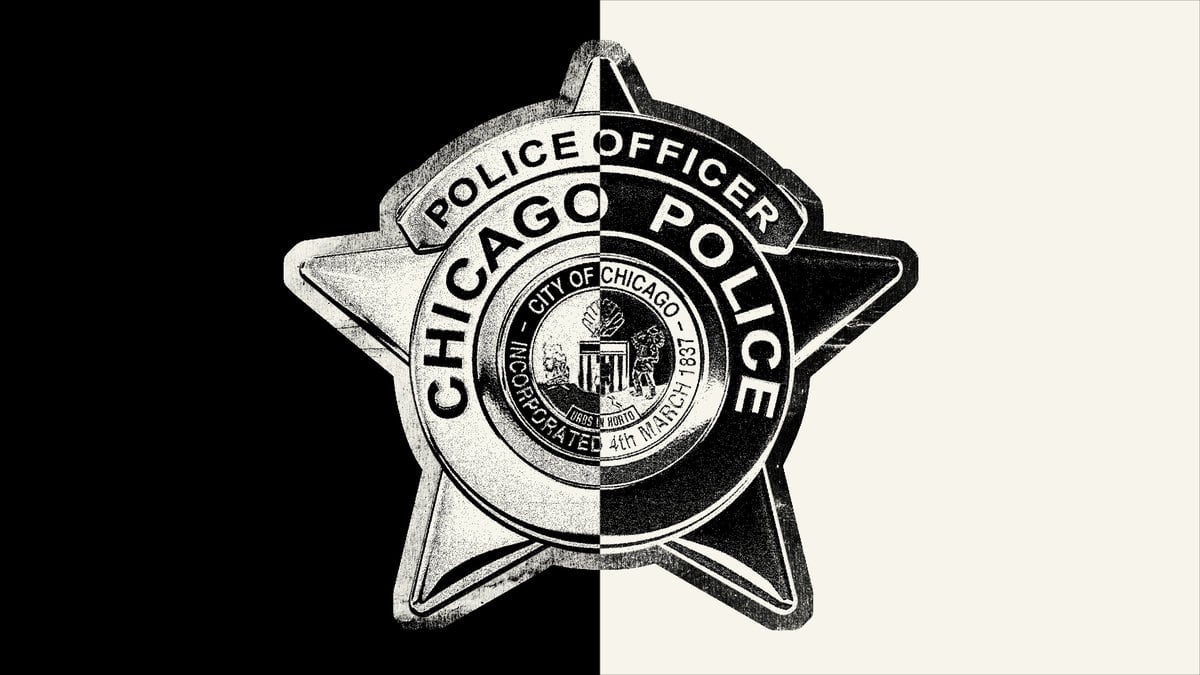A veteran cop who says he doesn’t identify as Caucasian wants to change the racial designation in his personnel file from “white” to one he believes is more appropriate—even taking a genetic test to bolster his contentions—but claims the department won’t let him.
That’s according to a $1 million civil rights lawsuit filed by Officer Mohammad Yusuf, who joined the Chicago Police Department (CPD) in 2004 and “was compelled to identify as Caucasian, despite not identifying as white.” Now, Yusuf, who is of Egyptian descent and “currently identifies as Egyptian and African American,” wants a federal judge to make the CPD update its records to “accurately reflect his race, as North African.”
“While other CPD officers can correct their gender to match their gender identity, other officers, like Yusuf, are barred from obtaining accurate racial designations matching their racial identity,” the lawsuit states.
Yusuf’s attorney, Gianna Scatchell Basile, told The Daily Beast she sees the lawsuit, which she described as the first of its kind, as a referendum of sorts on “identity’s changing and fluid nature.”
“I think the City of Chicago was on the right track when they allowed people to change their gender identity, and allowed them to identify as the proper gender, but then when it comes to race, it’s just very arbitrary,” said Basile, who is married to a CPD detective.
The CPD’s stance that “racial identity is immutable contradicts contemporary understandings of race as a fluid and complex social construct,” the lawsuit goes on. “This outdated viewpoint fails to recognize the dynamic nature of racial identity and has tangible, adverse effects on Officer Yusuf’s professional experiences within the police force.”
“Accurate identity documentation is a cornerstone of dignified treatment within the workplace and is pivotal in accessing fair employment and promotional opportunities, which in CPD’s current environment, hinge on the accurate reflection of an individual’s racial identity,” the suit states.
To that end, it claims, because of CPD’s “incorrect racial designation of Yusuf as Caucasian, he has been passed over for the Merit System promotion to sergeant.”
CPD officials did not respond to The Daily Beast’s request for comment.

The Chicago PD today allows new recruits to pick from nine different racial and ethnic categories.
Jim Young/ReutersWhen Yusuf joined the CPD in 2004, the onboarding paperwork did not include a racial or ethnic category into which he precisely fit, according to Basile, who provided The Daily Beast with a list of the nine designations in use today: “Black or African American,” “Hispanic or Latino,” “White,” “American Indian or Alaska Native,” “Native Hawaiian or Pacific Islander,” “Two or more races,” and “I choose not to disclose.”
Two decades ago, the choice was even more limited, Basile said, noting that the present categories still do not include an option for North African/Middle Eastern. So, when Yusuf asked higher-ups for guidance on which race to select, Basile said they told him to “just mark himself off as white.”
In his lawsuit, which was filed Feb. 19, Yusuf says he “initially perceived this as a minor administrative inconvenience, expecting that CPD would revise its procedures to reflect an evolving societal understanding of race.”
The American Medical Association recognizes race “as a social construct, rather than an inherent biological trait.” Some 10 million Americans checked off a different race in the 2010 U.S. Census than they did in 2000. “Do Americans change their race? Yes, millions do,” University of Minnesota sociologist Carolyn A. Liebler told the Pew Research Center at the time. “And this varies by group.” In 1997, Egyptian-born Mostafa Hefny, who considered himself to be of Nubian ancestry, sued the U.S. government to be reclassified as Black, arguing that his misclassification as white had excluded him from certain grants, scholarships, and loans. (A judge dismissed Hefny’s case without prejudice in 1998; in 2019 he wrote a book titled, I Am Not a White Man but the US Government Is Forcing Me to Be One.)
Similarly, according to Yusuf’s lawsuit, the CPD “enforces a policy and practice that categorically refuses to change the racial markers on individual officers’ personnel records to match his or her racial or ethnic identity.”
After being “consistently denied the opportunity to alter his racial designation within the department,” CPD commanders “demanded that Yusuf provide ‘proof’ of his race or ethnicity before it would change his race or ethnicity in his personnel paperwork,” according to the lawsuit.
“The idea of even having to prove race is wrong,” Basile said. “Race is not scientific.”

Even after providing proof, Officer Mohammad Yusuf says the CPD continued to block him from updating his racial designation.
Chicago Tribune/Chicago Tribune/Getty ImagesStill, Yusuf took a 23andMe DNA test to prove his Egyptian heritage to CPD officials, the lawsuit states. But even after providing the evidence, the department continued to deny Yusuf’s request to change his racial designation, according to the suit. It says the CPD justified its stance by pointing to an “unspecified” departmental policy, which “arbitrarily asserts that changing one’s racial identity is ‘not possible.’”
CPD does not oblige transgender cops to provide proof of their transition before updating their personnel records, according to the lawsuit. Such a policy is in line with those supported by mainstream medical organizations, which say surgery is not required before officially changing one’s designated gender.
By prohibiting Yusuf from updating his race from white to North African, the CPD has erased his “true racial identity,” according to the lawsuit.
CPD’s promotional system has long been fraught, beginning with complaints that the written tests for aspiring sergeants and lieutenants were discriminatory, according to an investigation report released Jan. 17, 2017 by the Justice Department’s Civil Rights Division and the U.S. Attorney’s Office for the Northern District of Illinois.
To diversify its mostly-white ranks, the CPD first instituted so-called merit-based promotions beginning in the 1990s. But the rank-and-file largely found themselves “dissatisfied and discouraged” by the merit promotions, which permitted supervisors to nominate cops for sergeant and lieutenant positions even if they scored poorly on the promotional exams, and they were phased out in 2019. But merit promotions were back again in 2021, and remain in place today.
Yusuf took the sergeants’ exam in 2019, and scored in the top tier of all candidates, according to his lawsuit, which says Yusuf has received “numerous accolades and recognitions for leadership, mentoring, decision-making, and interpersonal skills.” (He was also named as a defendant in a 2014 false arrest lawsuit that reportedly cost the city $50,000.) Since then, the suit says there have been roughly 75 merit-based promotions to sergeant. Of those, fewer than five were white, the suit claims. Yusuf, it points out, was not among them.

Race is fluid, according to Officer Mohammad Yusuf’s lawsuit, which claims the Chicago PD does not seem to agree.
E. Jason Wambsgans/Chicago Tribune/Tribune News Service via Getty ImagesYusuf’s suit claims that although he had “exemplary qualifications,” he has been “repeatedly bypassed for promotion in favor of less qualified candidates, based on their race, specifically African American officers, some of whom had disciplinary issues and were not suitable for the responsibilities of a sergeant.”
Basile’s co-counsel, Christopher Cooper, himself a former Washington, D.C., police officer, conceded that this is “the elephant in the room” when it comes to Yusuf’s case. While Yusuf would like to be reclassified as non-white because he thinks it will help him get promoted, Cooper, who is Black, also insisted the CPD can be diversified “without race-based quotas.”
“We want racially diverse workplaces, we want workplaces that are representative of the larger population,” Cooper told The Daily Beast. “We’re not saying the CPD should not make efforts to integrate its leadership. It should. But we want that to happen through an equitable process.”
Basile said Yusuf is not planning on retiring for “quite a few years,” and remains “confused and frustrated” about not being able to change his racial designation at work.
“He thinks [the CPD is] not recognizing that times have changed, and he’s stuck in this category,” she said.
An initial status hearing is scheduled for May 14 at 10 a.m. in Chicago federal court.






